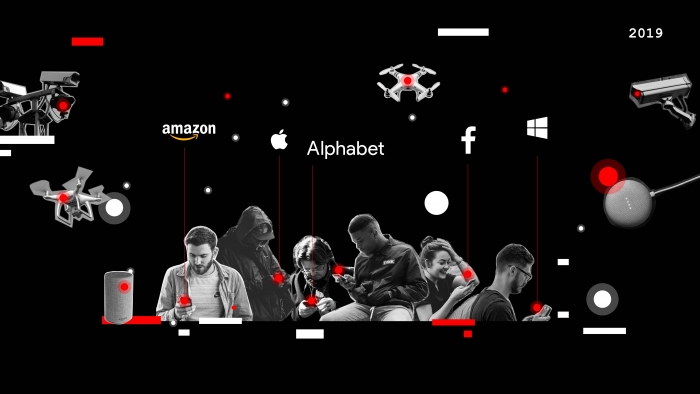 In Latin America, the increasing scale of illegal surveillance – enabled by governments’ purchases of surveillance and hacking software – is raising urgent questions about its impact on civil rights. In this post, Fabrizio Scrollini – LSE graduate and chair of Datysoc (a project exploring surveillance, privacy and cybersecurity in the digital age) – illustrates which points need to be followed if democracies want to keep their citizens safe in an age of aggressive surveillance technology.
In Latin America, the increasing scale of illegal surveillance – enabled by governments’ purchases of surveillance and hacking software – is raising urgent questions about its impact on civil rights. In this post, Fabrizio Scrollini – LSE graduate and chair of Datysoc (a project exploring surveillance, privacy and cybersecurity in the digital age) – illustrates which points need to be followed if democracies want to keep their citizens safe in an age of aggressive surveillance technology.
In June, the New York times reported that prominent Mexican activists and journalists were targeted by a surveillance software which allegedly is only sold to governments and can only be used against very specific targets. International investigators from the Inter-American Commission of Human Rights faced illegal surveillance while researching the deaths of 43 students in the State of Guerrero. Social Tic, RD3 and Article 19 (Mexican NGOs) with the support of Citizen Lab of Toronto University exposed these incidents. These NGOs also took part in the Open Government Partnership, an alliance of governments and civil society organisations driving open government reforms through several dialogue mechanisms. To add complexity to this matter, some of the activists targeted were leading members of this alliance. The situation then seems as follows: civil society leaders, advancing a dialogue with the Mexican government, engaging in good faith conversations to change key aspects of public administration and policy were spied upon by unknown security forces. This is hardly a way to enhance trust in a dialogue process.
It is not news that illegal surveillance is a serious issue in many Latin American countries, but the scale and focus of this particular act is now jeopardising a mechanism that delivered some promising reform avenues in the Mexican case, in particular its open data, anti-corruption and transparency reforms.
In Uruguay, the last standing full democracy in Latin America according to the Economist Intelligence Unit, challenges are emerging. The government secretly purchased “El Guardian”– a software to intercept calls and social media, and there is little transparency about how it is used and the operating protocols it follows. Furthermore, the government secretly bought the software Predpol, a tool to potentially “anticipate crimes”. Moreover, the Uruguayan government purchased a surveillance center for 20 million dollars in the coastal town of Maldonado, installing more than 2000 cameras in the area, charging residents for this service, and did not provide information about costs or procedures this new center would follow. There is as yet no evidence that the Uruguayan government has software to run targeted operations like its Mexican counterpart, but Uruguayan authorities did meet the so called “Hacking team”, an Italian software company which sold hacking software to different governments in Latin America illegally. Also, there is now extensive evidence that the military spied on all political parties using more traditional techniques, from 1985 until at least 2007. In short, not even this small democratic country is safe in Latin America.
The current situation is problematic. On the one hand, governments might legitimately need new tools to fight crimes, particularly organised crime, which is a very serious issue in Latin America. Furthermore, some of the surveillance technology that governments could acquire could help to standardise operations and procedures by security and intelligence forces, limiting their activities. On the other hand, governments seem to be on a shopping “spree” without any type of guidance or framework about how to ensure that basic human rights and liberties are guaranteed. In particular, given the current technologies available to security agencies, freedom of expression, privacy and equal treatment by public authorities could be under threat. At Abrelatam- Condatos, the most relevant open data forum in the region, Edison Lanza, the Special Rapporteur for Freedom of Expression of the Inter-American Commission on Human Rights made the case for governments “not to have two faces”. The same government that is enabling collaboration, providing open data and enhancing open government is the same government carrying forward dubious operations and secret purchases of new technological weapons.
There are three key policy issues to address if democracies are to claim to be safe in an age of aggressive surveillance technology. Security comes at a cost, but not any cost is reasonable.
- First, a clear framework should consider issues of necessity and proportionality to acquire and use these technologies, as well as to identify which agencies will be able to operate them. The same framework should require a set of reports about the use of these technologies, including whether they have used third parties (such as telecoms) to carry forward their operations.
- Second, civil society organisations working on these issues seldom have the capacity or resources to take a stand and engage in a reform process. Surveillance has a long story in Latin America, but this new wave (of which spying software is just the tip of the iceberg) is different due to the nature, scale and cost of these technologies. An engaged civil society aware of international developments is needed to ensure proper scrutiny and debate.
- Third, as Professor Lodge thoroughly explains, there is the thorny issue of accountability and enforcement. Legislative committees, strict transparency rules and international bodies are initial policy tools to consider, but might not be enough to counterbalance the misuses of some of these technologies in the context of fragile democracies.
It is not clear when and how Latin Americans are going to have a conversation to clear the air about the current state of surveillance in the region, as well as other issues such as a more general debate about how to enhance privacy in the digital age. If such a conversation does not emerge, then all the open governments efforts – while noble – will live tainted by the shadows of surveillance.
This post gives the views of the author and does not represent the position of the LSE Media Policy Project blog, nor of the London School of Economics and Political Science.





